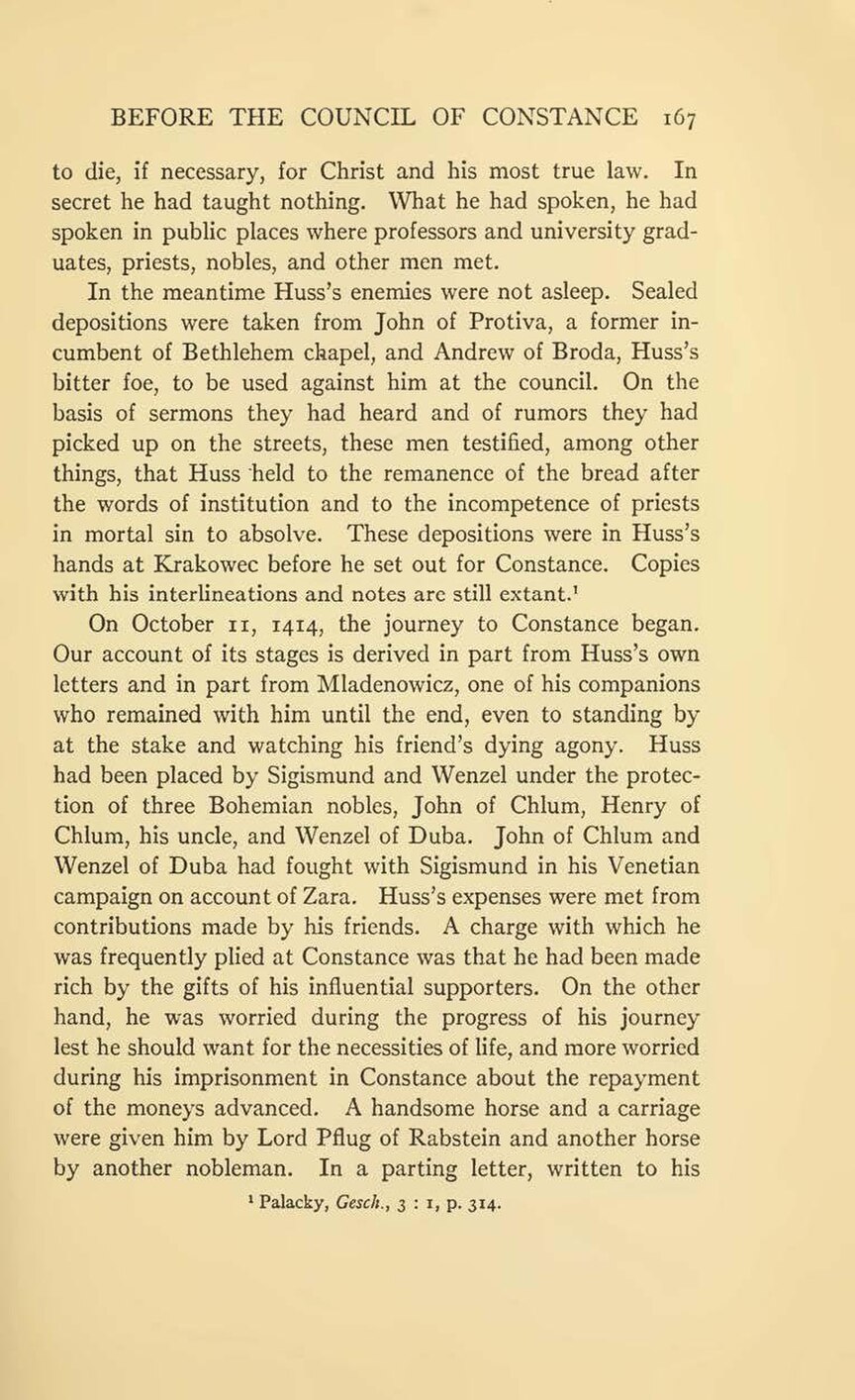to die, if necessary, for Christ and his most true law. In secret he had taught nothing. What he had spoken, he had spoken in public places where professors and university graduates, priests, nobles, and other men met.
In the meantime Huss’s enemies were not asleep. Sealed depositions were taken from John of Protiva, a former incumbent of Bethlehem chapel, and Andrew of Broda, Huss’s bitter foe, to be used against him at the council. On the basis of sermons they had heard and of rumors they had picked up on the streets, these men testified, among other things, that Huss held to the remanence of the bread after the words of institution and to the incompetence of priests in mortal sin to absolve. These depositions were in Huss’s hands at Krakowec before he set out for Constance. Copies with his interlineations and notes are still extant.[1]
On October 11, 1414, the journey to Constance began. Our account of its stages is derived in part from Huss’s own letters and in part from Mladenowicz, one of his companions who remained with him until the end, even to standing by at the stake and watching his friend’s dying agony. Huss had been placed by Sigismund and Wenzel under the protection of three Bohemian nobles, John of Chlum, Henry of Chlum, his uncle, and Wenzel of Duba. John of Chlum and Wenzel of Duba had fought with Sigismund in his Venetian campaign on account of Zara. Huss’s expenses were met from contributions made by his friends. A charge with which he was frequently plied at Constance was that he had been made rich by the gifts of his influential supporters. On the other hand, he was worried during the progress of his journey lest he should want for the necessities of life, and more worried during his imprisonment in Constance about the repayment of the moneys advanced. A handsome horse and a carriage were given him by Lord Pflug of Rabstein and another horse by another nobleman. In a parting letter, written to his
- ↑ Palacky, Gesch., 3: 1, p. 314.
